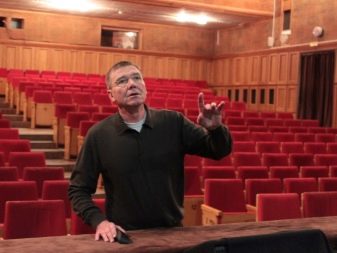All about professions in the theater
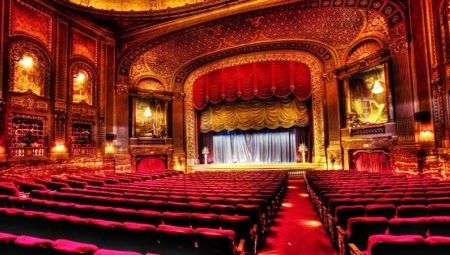
The magic of the scene exists, but not everyone knows who creates it. Even in the theater there is a routine, however, for many it becomes something constant and everyday, there is no strength to refuse it. If you want to connect your life with the theater, there are a lot of professions that can help with this.
Peculiarities
Dozens of people create a performance, which then receives a standing ovation from the audience. And not only the director and the acting troupe can rightly consider themselves to be involved in them - there are a lot of professions that every theater needs. There are, for example, costumers and props, whose professionalism is so highly valued that not every actor will be so treasured in the theater.
Some specialties are taught in the corresponding universities - and there are no other options. But, for example, you can become a make-up artist or cloakroom attendant without education.
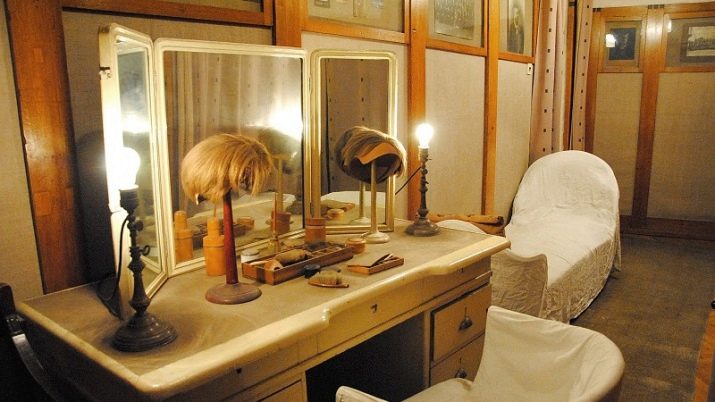
List and description of professions
The theater can be art, opera, drama, etc. There are, for example, theaters, the troupe of which is made up of people who simultaneously act in films. There are theatrical professions that are in the forefront of popularity.
Actor
This is the face of the theater. The acting troupe includes, as a rule, people who graduated from a theater university or school. It is believed that the actor enters the service in the theater, they say so: "I serve in the theater of musical comedy" or "I have been serving in this theater for 20 years." It is almost impossible to find yourself in the place of an actor without the appropriate education, unless it will be an amateur theater. Or, for example, a person accidentally enters the cinema, possessing a natural talent, achieves success and wants to try himself on the stage as well.But, as a rule, he still goes to study, because no nature and talent can replace exclusively professional skills, the basics of acting. Exceptions are so rare that they only prove the rule.
The actor's salary is not the highest. If this is a provincial theater and an actor is called a star, involved in a large number of performances, but strictly starring, it is impossible, he will receive from 15 thousand rubles. Alas, these are the realities. In Moscow theaters, salaries are higher, as is competition.
The best universities for obtaining the acting profession are the Moscow Art Theater School, the Higher Theater School named after V.I. Shchepkina, the Shchukin Theater Institute, GITIS.
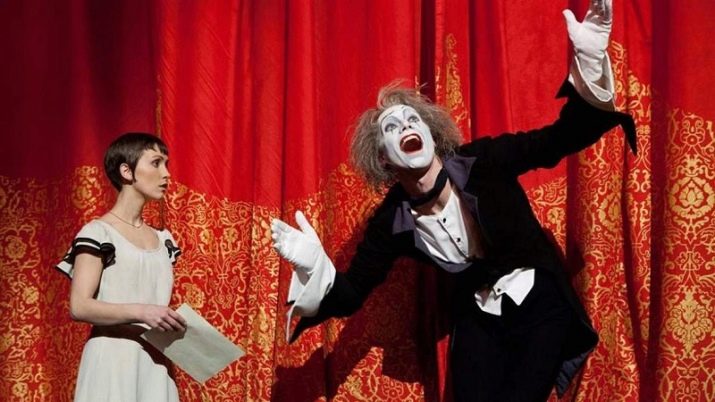
Animator
If you use this word in the correct sense, the animator is a street actor. He works in amusement parks, at public events, alone or as part of a street acting troupe. Ideally, a person associated with this profession must also have an acting education. Today, animators are more often understood as people who conduct children's and adult holidays, work in the framework of thematic street events. Naturally, not everyone has an acting education.
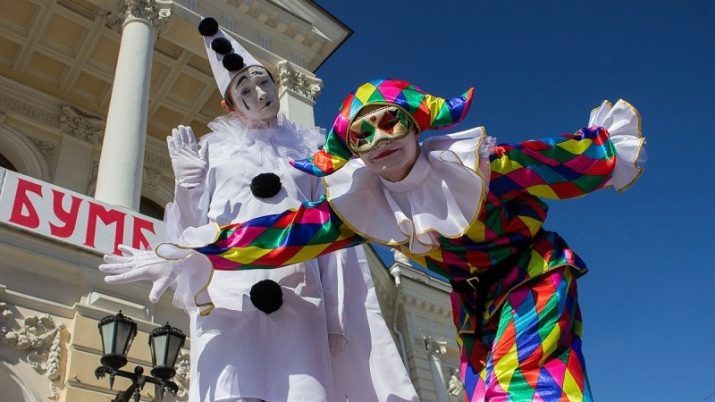
Prompter
In other words, a hint. It is this person who sits in the prompter's booth and often saves the fate of the performance. Its task is to promptly prompt the actor if he has forgotten the text. And, of course, the viewer should not notice any of this. The booth itself is in the middle of the stage, slightly rises above the platform. It is easy to recognize by its shape - it resembles a shell.
But nowadays there are not prompters in every theater. The profession is losing its relevance, therefore it is not indispensable in the theater. Or a person in this specialty can combine it with another in order to work full-time.
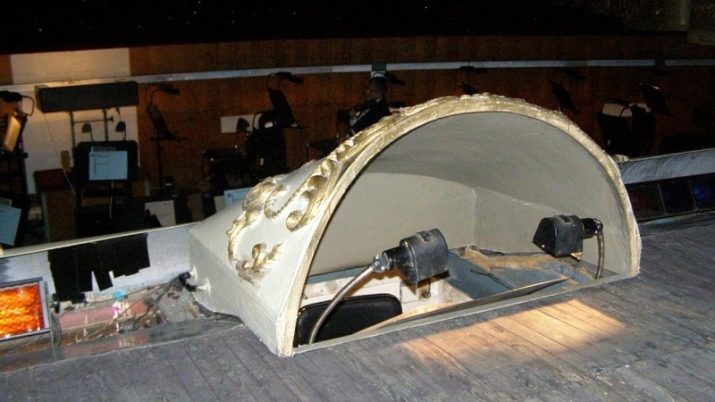
Cloakroom attendant
Is it worth reminding where the theater begins? So, the owner of that hanger is the cloakroom attendant. In this case, of course, you can do without special education, but the requirements are not the easiest. First, in most cases, only Monday will be the day off. Secondly, you need to be fast, dexterous, have a good memory. And, of course, as in a theater without politeness, courtesy - the viewer must be located at the entrance. As the saying goes, the profession requires conformity to the place.
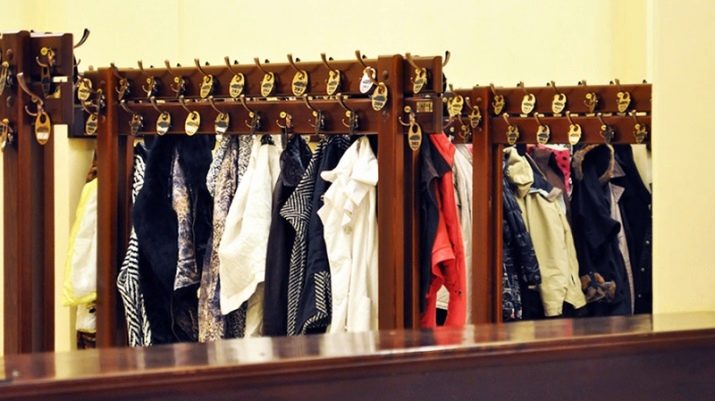
Props
A graduate of an art university can get a job in this specialty in the theater. This is not just an artist whose soul sings and requires creativity - you will also need purely technical skills: for example, to know the characteristics of different adhesives, to understand paints in terms of chemical properties, etc.
Basically, the prop is engaged in the manufacture of sketches, which he must agree with the director. He is also in charge of the shop where the decorations and props are made. This is what the props artist does. But an ordinary prop performs technical tasks: he brews glue, kneads clay, cuts paper, paints, etc.
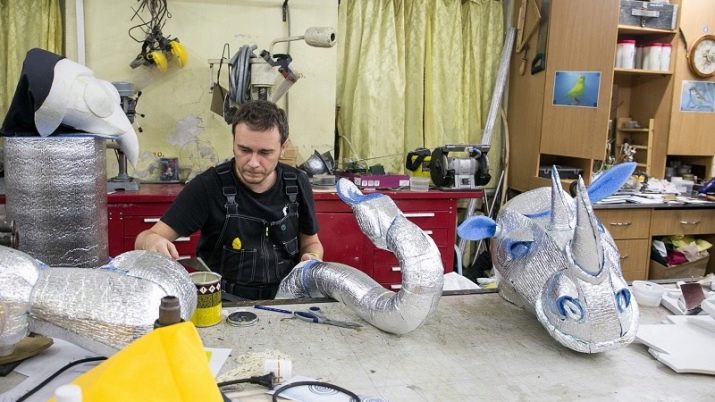
Requisitor
It's not only the director who has to say “I believe” in the actor's performance. The spectator sitting in the hall must believe everything that happens on the stage. And if, for example, the hero drinks milk, the liquid used should be at least similar to him.
Only the person responsible for this can recall everything that is included in the props. He is responsible for those nuances, without which the general picture of the scene disintegrates.
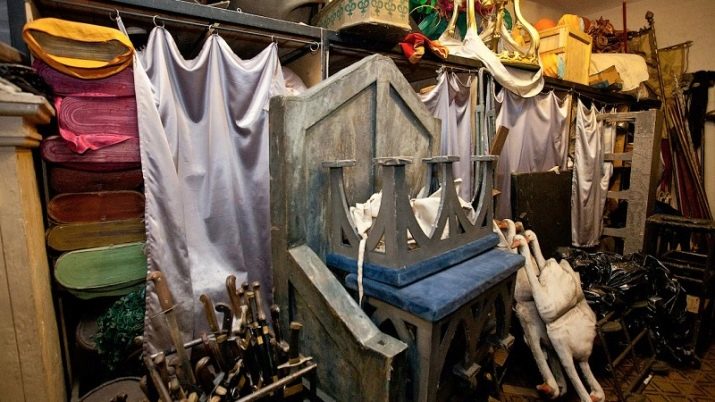
Clacker
Perhaps not everyone has even heard this word. In the very name of the profession lies its meaning, translated from French "claque" means "clap with the palm of your hand." They, the clappers, have to give people a standing ovation, clap in the right place and on the right scale. In fact, they turn the audience on, often determining the success of the performance. The clerk should draw the audience's attention to that moment in the performance, which is significant, complex, special, but the viewer does not always guess about it.
Naturally, competitors often sent their own claqueurs to ruin the rival's performance. On someone else's production, the hired claqueurs behaved in such a way that there was no need to talk about success. Their task is to boo the performance, to interfere with a competitor.

Ballerina
This is the name of a ballet dancer, a performer of classical dances, who was educated according to ballet canons, using the so-called finger technique in her work. A prima ballerina is a leading dancer, leading soloist of a ballet troupe. It is she who gets the main roles in the productions. A ballet dancer (male) who has achieved the same heights is called a prime minister.
You can't go to a ballerina or ballet dancer after school - it's too late. They come to the profession in early childhood (as a rule, even in preschool), in the first years of dancing, it turns out whether the child is suitable for classical ballet. It sounds harsh, but there is a selection, and often it is not only about talent and working capacity, but rather anatomical correspondence - there must be a certain figure, flexibility, eversion of the foot, etc. At 10-11 years old, children enter ballet school, where, along with with general education disciplines master ballet.
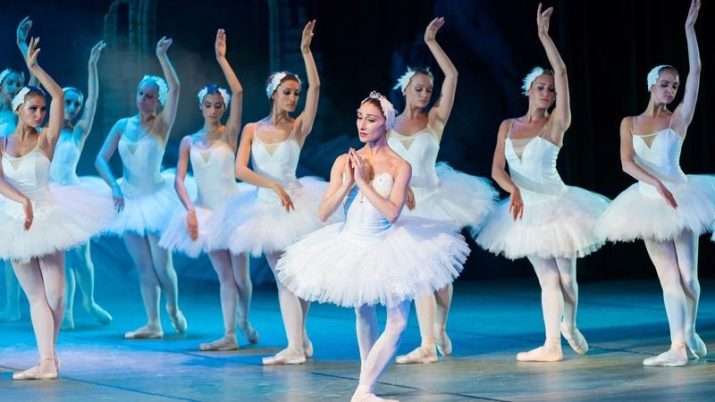
Light operator
This person is responsible for the light console, which can be considered a kind of cursor on the stage. If the setting is small, the light operator can perform the tasks of a lighting designer, as well as the head of the electrical department. Then he will develop the light score, place the devices, be responsible for their direction. Today this profession requires special skills, since sometimes you have to create whole pictures with light. Light can play a leading role in a performance, place semantic accents, etc.
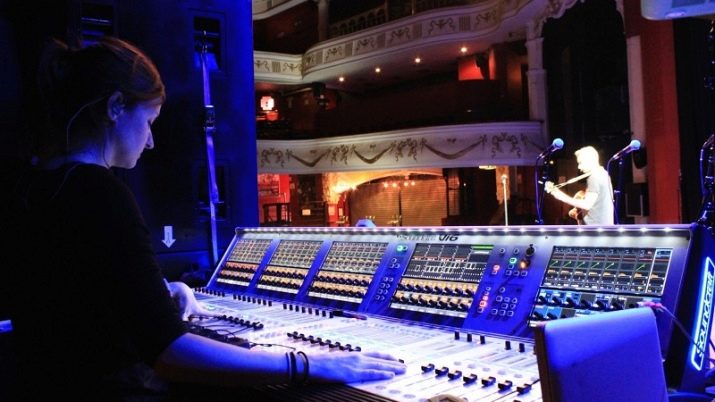
Music designer
This is a professional who will build the musical line of the performance - select the music so that it is appropriate, convincing, helps to reveal the image and emotionally involve the viewer. And everything should correspond to the initial idea of the director.

Conductor
This person directs the learning and performance of ensemble music. He is responsible for the artistic interpretation of the work, he also guarantees ensemble harmony, is responsible for the playing technique of each performer. In addition to the fact that this must be a musically gifted person, he must train his ear, have a dramatic flair. And, of course, for his team, he must be an unquestioning leader.
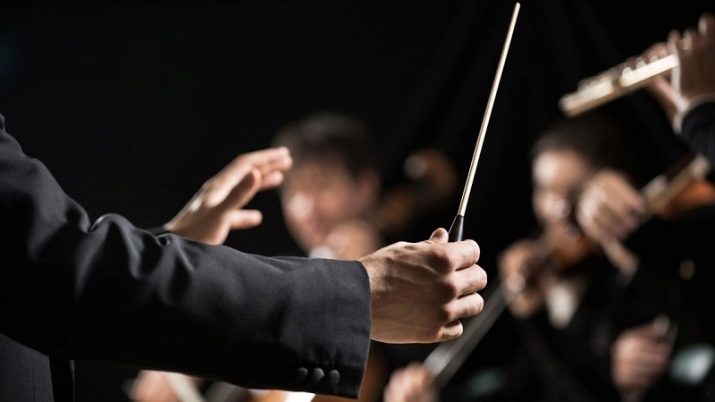
Scenographer
This is the artist who is responsible for the design of the production, creates its pictorial and plastic image. He simultaneously performs the roles of a painter, graphic artist, designer, architect and technologist. He's not the only one involved in setting up the stage, but he is in charge of the process. Often, the performance is remembered precisely for the incredible stage design, for the chic solution of this part of the performance, which speaks no less than the replicas of the heroes.
The set designer will be successful if he can build a team of the same professionals, since his ideas must also be realized.
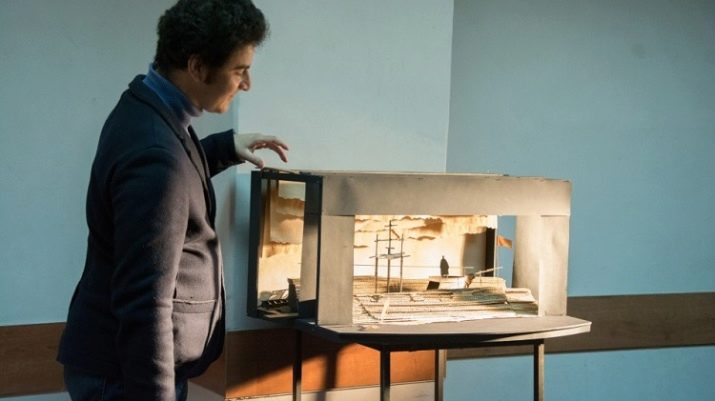
Make-up artist
The task of this specialist is to change the appearance of the actor so that it best suits the role. And it's not just about being able to apply makeup. Make-up differs from ordinary cosmetics, it helps a person to be bright, expressive, so that the viewer can see it even in the last row. Sometimes the make-up artist has to "paint" the face, changing the actor beyond recognition.

Painter
Before a costume appears, it needs to be designed and drawn. This is what the costume designer does. There are also stage designers, lighting designers, but not every theater has these tasks assigned to different specialists. In any case, it must be a person with a higher art education.
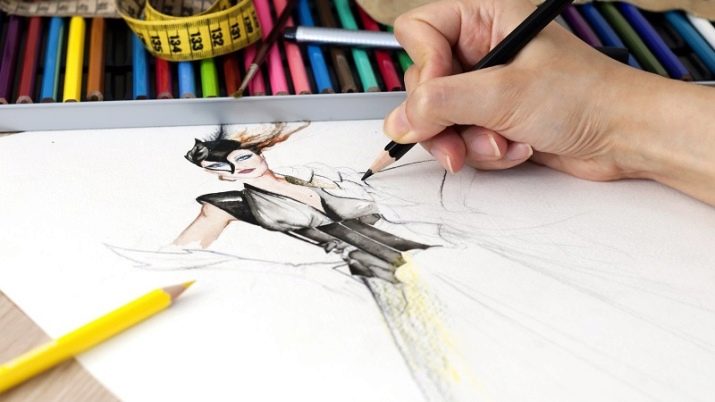
What other art majors are there?
You can also learn to be an actor in a puppet theater (for this, a school is often enough). The specialist must know the technique of puppetry, have a script, acting technique, be musical, etc. Speaking of theater, you can also hear such a word as "entrepreneur". Today it is used somewhat less frequently and to a greater extent as associated with the theater of the pre-revolutionary era. Today it would be easier to say - a producer. As a last resort - an impresario. This person could own a theater and be involved in its promotion. One of the most legendary representatives of this profession is the man who gave the world “Russian Seasons”, Sergei Diaghilev.
The head of the troupe is a modern theater manager who is responsible for all organizational matters related to the cast. He takes part in role assignment and in drawing up rehearsal plans. He is also responsible for ensuring that the workload of the troupe is uniform. He is also engaged in the selection of new actors or invites artists from outside for a one-time participation in the play.
Of course, how not to mention practically the main person in the theater - director... He will determine the general idea that unfolds in the course of the performance, because one and the same work of art can not only be staged in different ways, but also saturated with diametrically opposed interpretations. The director receives his education at an art university, at the directing department. A person who lives by art - this is probably about him.
Usually a theater has several workshops: in one, technical workers who are responsible for light, sound, stage mechanics work, in the other they are engaged in the manufacture of scenery and props, in the third - costumes.
Also in modern theaters there are managers who are responsible for the commercial success of the theater, advertising, promotion, etc. In some theaters there are also critics on the staff, there is a literary department.
